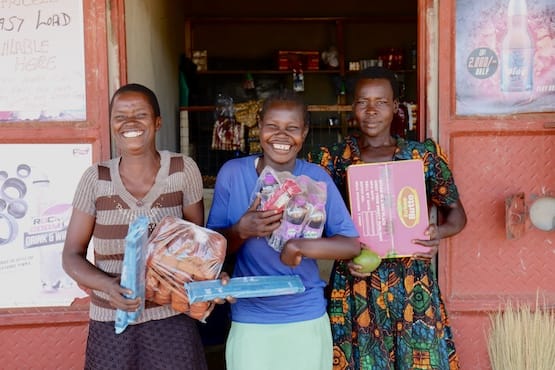The problem: poverty traps
Many of the world’s very poorest people are caught in a cycle of poverty. They face multiple barriers to improving their standard of living, including a lack of access to capital for productive investments, poor information about managing assets, and the inability to make risky but potentially productive investments due absence of a safety net or savings buffer.
The solution: supported entrepreneurship
Village Enterprise addresses the fact that poverty is multifaceted by providing a multifaceted program to support new entrepreneurs. They employ a group-based approach that brings together diverse skill sets, spreads risk, builds social capital, and produces cost efficiencies. Because entrepreneurship can be risky and take time to pay off, the program offers grants, not loans, to allow vulnerable people to immediately improve their standard of living.

How Village Enterprise works
Village Enterprise uses a one-year Graduation program to help people escape the poverty trap. The program provides business training and a US$180 grant to groups of three entrepreneurs to start a business. Village Enterprise targets individuals who have no prior business experience, live on less than US$1.90 a day, and are unable to provide for their family’s basic needs. Each business is assigned a local mentor and is organized into a Business Savings Group of 30 entrepreneurs to provide access to savings.

Multiple studies show that cash grants combined with business training lead to significant increases in household income, and that these benefits persist over a number of years. [1] Researchers, including Innovations for Poverty Action (IPA), have conducted a randomized controlled trial studying the efficacy of Village Enterprise’s work. The study found that the microenterprise graduation program leads to increased consumption, assets, and income, as well as improvements in nutrition and subjective well-being. [2] [3]
In late 2017, Village Enterprise launched the first ever development impact bond (DIB) for poverty alleviation in Africa. The US $5.32M DIB will transform the lives of 12,000+ households in rural Kenya and Uganda by creating 4,000+ sustainable microenterprises in under four year. It will also demonstrate how to ensure impact at scale as similar Graduation models are being replicated in other countries. [4]
